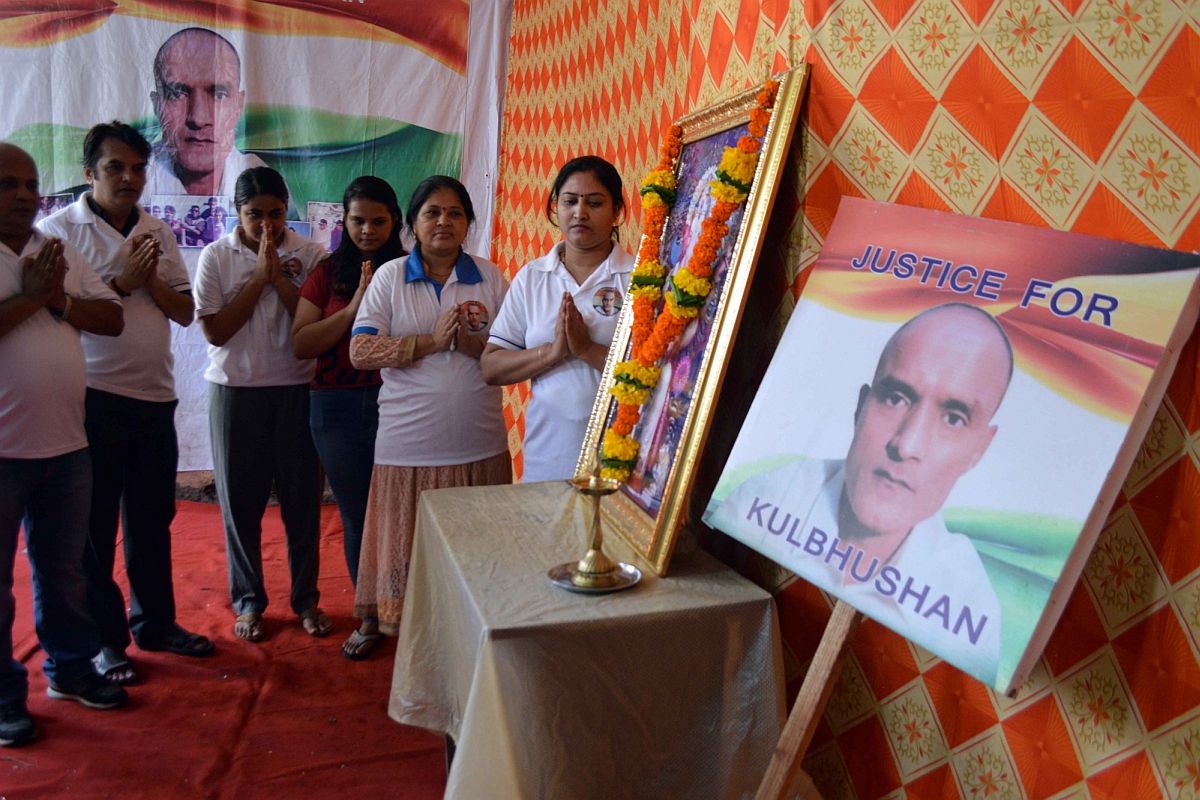India will on Monday proceed for consular access to Kulbhushan Jadhav hoping that Pakistan will ensure “right atmosphere” for the meeting between an Indian official and the former naval officer sentenced to death in Pakistan over allegations of spying and terrorism.
India’s Deputy High Commissioner to Pakistan, Gaurav Ahluwalia will meet Pakistan Ministry of Foreign Affairs spokesperson (MoFA) Mohammad Faisal and then will go on to meet Jadhav.
“We hope that Pakistan will ensure right atmosphere so that the meeting is free, fair, meaningful and effective in keeping with the letter and spirit of the ICJ’s orders,” Government sources were quoted as saying by news agency ANI.
Pakistan Ministry of Foreign Affairs had on Sunday informed that consular access to Jadhav will be provided today in line with the Vienna Convention on consular relations, International Court of Justice (ICJ) judgement and the laws of Pakistan.
The development comes as the International Court of Justice (ICJ) on July 17 ordered Pakistan not to execute Kulbhushan Jadhav and directed “effective review and reconsideration” of his conviction and the sentence awarded to him by a military court.
The world court, while rejecting all objections raised by Pakistan, directed it to grant consular access to Jadhav “without further delay”, while holding that it had “breached” the Vienna Convention in this regard by denying him this right.
The ICJ gave a detailed verdict rejecting all the objections of Pakistan, including one unanimously on the admissibility of the case and also the claims by Islamabad that India had not provided the actual nationality of Jadhav.
The verdict was 15 to one in favour of India – the lone dissenter being from Pakistan.
It ordered, “a continued stay of execution” on Kulbhushan Jadhav, saying it “constitutes an indispensable condition for the effective review and reconsideration of the conviction and sentence” of the accused.
A day after ICJ directed Pakistan to grant consular access to Jadhav, its foreign office said it has informed Jadhav of his rights to consular access under the Vienna Convention.
However, the statement said that Pakistan will grant consular access to Jadhav “according to Pakistani laws”.
“As a responsible state, Pakistan will grant consular access to Commander Kulbushan Jadhav according to Pakistani laws, for which modalities are being worked out,” it said.
Ministry of External Affairs spokesperson Raveesh Kumar had earlier said that the Government had received a proposal from Pakistan offering consular access to Jadhav adding that the ministry was evaluating the proposal in the light of ICJ judgement.
But, India had declined the earlier offer of consular access as Pakistan has set some conditions, like insisting that it will have its own person present during the meeting between Indian officials and Jadhav.
The Indian government has been in touch with Pakistan to give ‘full’ consular access to former Indian Navy officer Kulbhushan Jadhav at the earliest in compliance and conformity with the recent ruling of the International Court of Justice (ICJ) and the Vienna Convention on Consular Relations (VCCR).
Pakistan had refused to allow Indian officials to meet Jadhav ever since his “arrest” in March 2016 for alleged espionage.
In April 2017, he was sentenced to death by a military court, after which India approached the ICJ.
Meanwhile, the first consular meeting with Jadhav comes as tensions have escalated between India and Pakistan after the Centre scrapped Article 370, that granted special status to Jammu and Kashmir.











